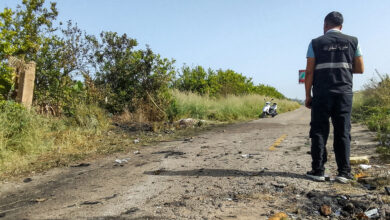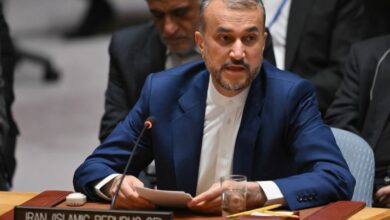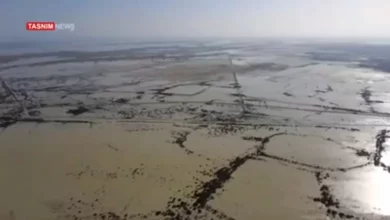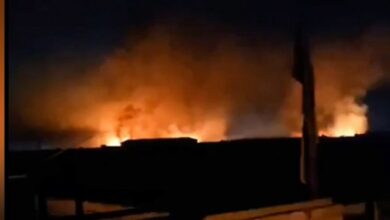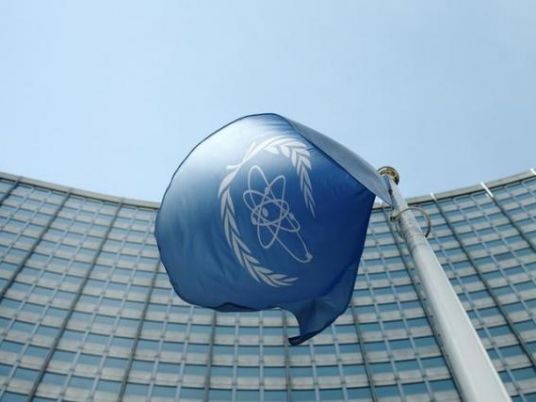
The United States was set to issue conditional sanctions waivers for Iran on Sunday, though it cautioned they will not take effect until Tehran has curbed its nuclear program as required under a historic nuclear deal reached in Vienna on July 14.
Several senior US officials, who spoke to reporters on condition of anonymity, said that despite Washington's move on Sunday, actual implementation of the deal was likely several months away. That means the sanctions relief Tehran is looking forward to is unlikely to come this year.
They said the timing of nuclear-related sanctions relief will depend on the speed at which Iran takes the steps needed to enable the UN nuclear watchdog to confirm Tehran's compliance.
"We cannot imagine it taking less than two months," one of the US officials said.
Sunday was so-called "adoption day" for the deal, which came 90 days after Iran, the United States, Britain, France, Germany, Russia and China reached an agreement under which most sanctions on Iran would be lifted in exchange for limits on Tehran's nuclear activities.
Separately, Iran told the International Atomic Energy Agency (IAEA) on Sunday it would fulfill a commitment under the deal to implement the Additional Protocol to its Comprehensive Safeguards Agreement, allowing UN nuclear inspectors more intrusive access to Iranian facilities.
Iran would take that step on "implementation day", the IAEA said in a statement. Under the deal, that is when the agency is due to have verified that Tehran has put restrictions on its nuclear activities in place and sanctions should be lifted.
Iran would also fully implement a commitment to tell the IAEA of any plans to build nuclear facilities, as agreed under the deal, the IAEA said.
In addition to Washington's conditional orders to suspend US nuclear-related sanctions, the US officials said the United States, China and Iran would release a joint statement on Sunday committing to the redesign and reconstruction of the Arak research reactor so that it does not produce plutonium.
The fate of the Arak reactor was one of the toughest sticking points in the nearly two years of negotiations that led to the July agreement.
Other steps Iran must take to meet the requirements of the deal include reducing the number of uranium-enrichment centrifuges it has in operation, cutting its enriched uranium stocks and answering UN questions about past nuclear activities the West suspects were tied to weapons work.
One US official noted that the IAEA said Iran already has met its obligation to provide answers and access to the agency. The official suggested the quality of answers Iran might have provided to the IAEA was not relevant when it came to deciding whether to press forward with sanctions relief.
Tehran denies allegations from Western powers and their allies that its nuclear program was aimed at developing the capability to produce atomic weapons.
Unilateral US sanctions against Iran not tied to its atomic program, such as those related to human rights, will remain even after the nuclear deal is implemented.
The US officials were asked about Iran's decision to test a ballistic missile a week ago in violation of a UN ban that will remain in effect for almost a decade. The United States has said the missile was capable of delivering a nuclear warhead.
The officials reiterated the launch was not a violation of the nuclear deal.
"This is not, unfortunately, something new," a US official said, adding that the missile test should not be seen as an indicator of Iran's willingness to comply with the nuclear deal.
"There is a long pattern of Iran ignoring UN Security Council resolutions on ballistic missiles," the official said.
Washington has said it would seek Security Council action against Iran over the missile test. Once the deal is implemented, Iran will still be "called upon" to refrain from undertaking any work on ballistic missiles designed to deliver nuclear weapons for a period of up to eight years, according to a Security Council resolution adopted in July.

